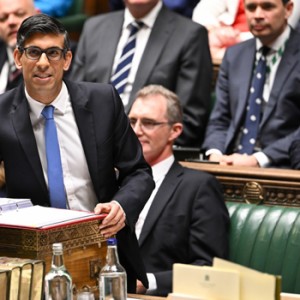Major U.S. oil refiners will meet with U.S. Energy Secretary Jennifer Granholm and other government officials on Thursday in an emergency meeting about how to lower surging fuel prices that are squeezing American consumers.
The two sides are meeting with a promise to work together in good faith, but they appear far apart on solutions. The discussion comes at a tense moment for President Joe Biden and Big Oil. The president has criticised its CEOs for reaping huge profits from a fuel supply crunch exacerbated by Russia's invasion of Ukraine.
The average price of gasoline was $4.955 per gallon on Wednesday, according to data from the American Automobile Association, 37 cents more than a month ago, and $1.89 more than a year ago.
Refiners cut capacity during the COVID-19 crisis shutdowns, but post-pandemic demand and a global fuel crisis after Western nations sanctioned Russian oil have driven prices up.
Refiners expected to increase supply capacity
Exxon, Chevron and other refining giants reported a massive jump in profits at the end of 2021 and the first quarter of this year, and have showered shareholders with buybacks and dividends.
The White House has targeted the refining industry's decision to idle about 1 million barrels per day of production capacity since 2020, arguing they should use their bumper profits to restart plants or units and help fill the supply gap that is driving up prices.
Refiners have a "patriotic" duty to help with supply, the White House has said. "We're going in, in good faith, asking them the question of what can be done. What do you need to open up additional refining capacity?" Gramholm told reporters on Wednesday.
The meeting includes executives from Exxon Mobil, Chevron, Marathon and Phillips 66. "I think this is more political fanfare than it is about policy and substance," John Hess, CEO of oil producer Hess Corp, said at a conference in New York on Thursday. Hess, which does not operate refineries, was not invited to the meeting.
Refiners say investing in reopening plants carries significant financial risks. The Biden administration came into office vowing to shift the country away from fossil fuels that contribute to climate change, and has secured billions of dollars for the electric vehicle industry.
The refiners will also suggest short-term options to lower gas prices, such as waiving summertime fuel specifications designed to reduce smog, relaxing shipping rules requiring union labor and approving new renewable fuel technology, sources told Reuters.
The industry will try to convince the Biden administration not to ban exports of U.S. fuel to combat record gas prices, arguing it will hurt allies who depend on the exports and force refiners to shut off capacity due to loss of markets.
Biden, a Democrat, on Wednesday called on Congress to pass a three-month suspension of the federal gas tax, but that was met with opposition from lawmakers within his own party who say it may provide little relief while blowing a hole in a Highway Trust Fund budget.














